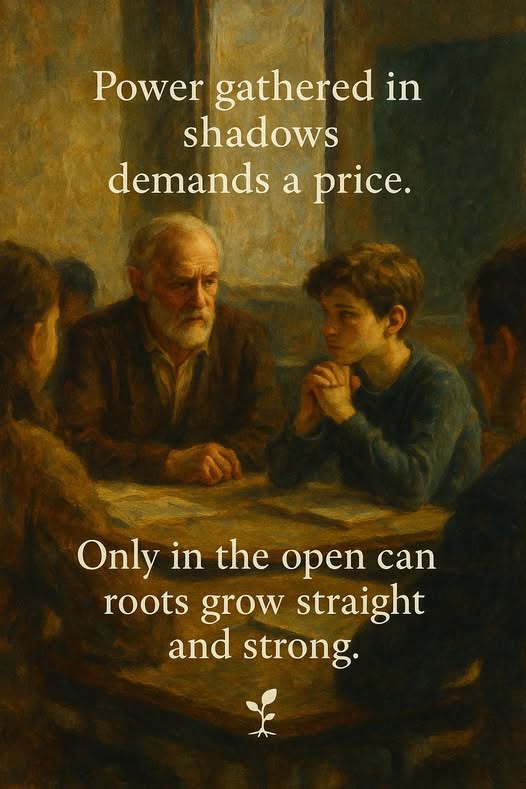
The following week, the debate hall was quiet.
Not from peace—but because the arguments had slipped off the stage and into corners where light did not reach.
In the common room, chairs scraped against the floor as clusters formed—two here, four there—faces close, voices low. Promises traded like currency, each one backed not by principle, but by the expectation of return.
Emil sat at the far end, watching the quiet choreography.
He realized this was no longer persuasion—it was procurement. Votes were no longer earned; they were purchased with favors.
Lara slid into the seat across from him, her tone somewhere between mocking and pitying.
“You’re falling behind, Emil. The speeches were just the audition. The real performance happens here.”
“I’m not performing in shadows,” he said.
“Then you’re not performing at all.” She rose and moved off, scanning the room with the predatory ease of someone who knew exactly how to trade influence for power.
Moments later, a boy from the most popular club approached Emil.
“I can bring you fifteen votes,” he said casually. “All I want is your promise to approve our extra funding next term.”
Fifteen votes. Enough to secure the lead.
Emil felt the weight of the offer—how simple it would be to say yes, how invisible the cost might seem at first.
But he remembered his father’s parable:
A farmer once tied his ox to a crooked plow. The work went faster at first, but every furrow bent the same way. By harvest, the field was useless.
“I can’t make that promise,” Emil said.
The boy gave a short laugh and left without ceremony, already seeking someone more agreeable.
By day’s end, Emil’s allies were fewer.
But so were his debts.
That evening, Leena found her father in the study.
“Is Emil going to lose?” she asked.
“Perhaps,” he said, setting down his tea. “But there are losses that keep the soil good for planting. Win too many times the wrong way, and nothing worth growing will take root.”
Outside, the wind rattled the shutters.
In the courtyard, the school’s spring garden bent under darkening clouds. Some flowers leaned into taller stalks for shelter; others stood alone, thin stems trembling.
The storm was not yet here, but it was coming.
And when it arrived, it would test not only the garden—but the ground each candidate had sown.

